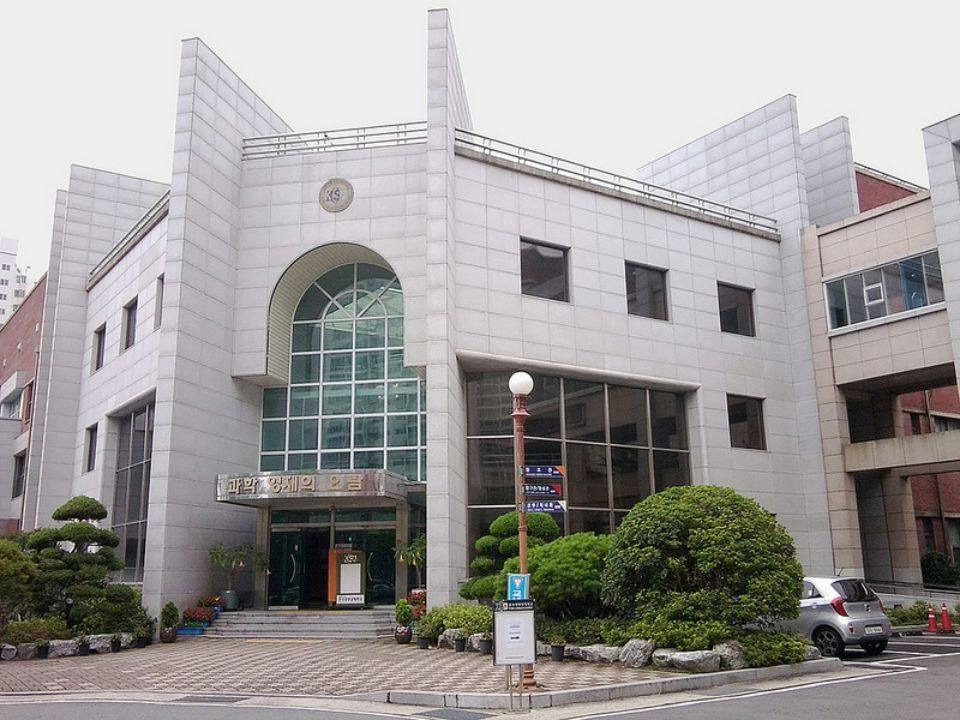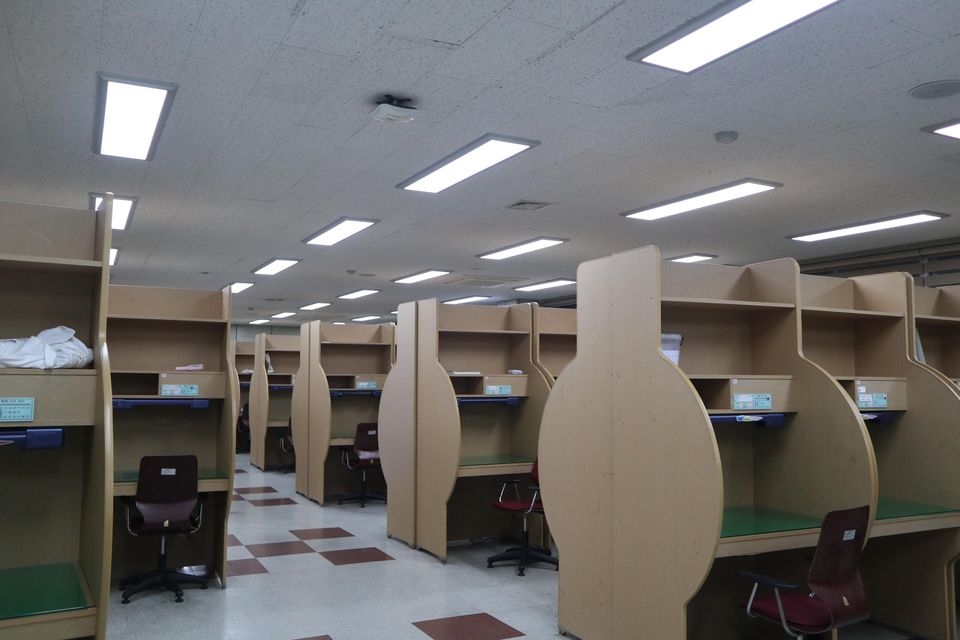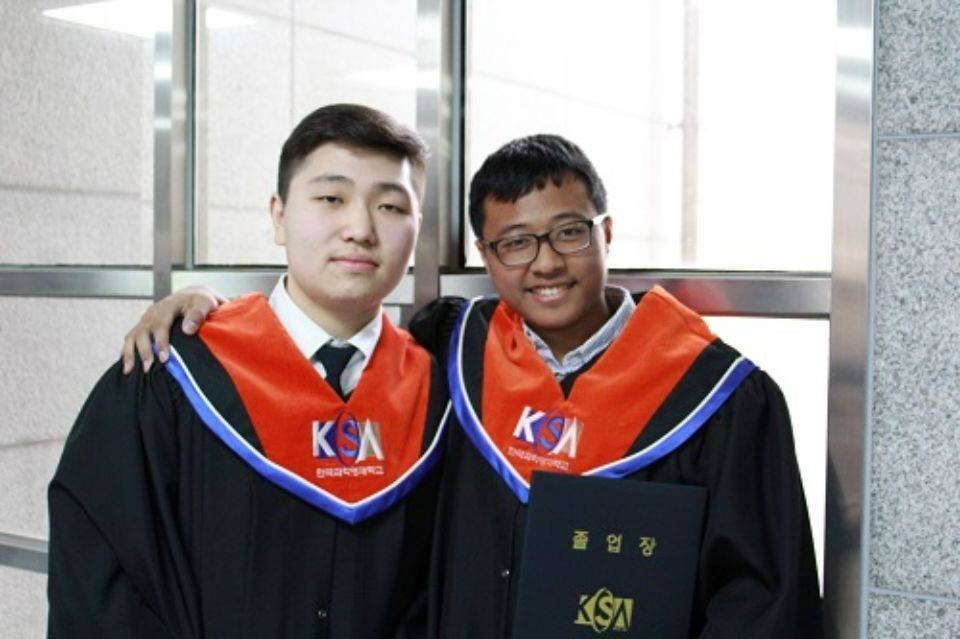Wearing Swimming Goggles, Yuki Kato is Said to Resemble Jennie BLACKPINK!
Yuki Kato is said to resemble Jennie BLACKPINK, curious about what she looks like?
![[KapanLagi Cerita Korea Ep 1] Biggest Initial Culture Shock in Korea: Learning Like in the Drama 'SKY CASTLE'](https://cdns.klimg.com/kapanlagi.com/p/headline/kapanlagi-cerita-korea-culture-shock-te-362b03.jpg)
Kapanlagi.com - Anyone who lives in a foreign country must have experienced culture shock. I am the same. In Indonesia, I am used to smiling when my gaze meets someone else, but when I do that on the Seoul subway, people look at me strangely. This is just one of the many shocks I received while living in Korea, especially in the early days of my life there.
My first place of residence in Korea was the Korea Science Academy (KSA), a state science academy equivalent to high school in the city of Busan that focuses on science and research. In addition to full scholarships, my biggest reason for daring to enter KSA was its English-language curriculum. When I first arrived in Korea and only knew 'annyeonghaseyo' (hello) and 'bap juseyo' (I order rice), I didn't have to stand there holding a dictionary in class. It doesn't mean I didn't stand there at all, because the lessons were indeed difficult, especially for me who hadn't finished 8th grade in Indonesia when I entered. In KSA, the normal 3-year high school curriculum is completed in the first year, and the remaining 2 years are for university-level subjects such as calculus, general physics, and earth science. Not to mention the addition of laboratory classes and annual research projects, I'm overwhelmed.

Because the school is aware of the weight of this curriculum for KSA students, learning facilities are provided everywhere. Each building has a study hall; long tables with chairs are always available on every floor. And because we have a moving class system, there are many classrooms and anyone can use them as long as it's not during class time. Among all of that, what impressed me the most is Changpal. This is the nickname the KSA students gave to the study hall in the creation building (chang-jo) on the 8th floor (pal-cheung). Changpal covers the entire 8th floor area of the Chang-jo building. The entrance and exit are only one, big and heavy, made of metal. Inside, there are rows of large partitioned study tables that are almost 2 meters tall, each complete with chairs, study lamps, and book storage. It has a capacity of more than 100 people, used for mandatory daily study sessions, especially for 3rd grade students. Every night after dinner, one by one the students enter, carrying their textbooks and laptops, sitting at their designated tables and studying until 10 o'clock. Next to the entrance, there is a teacher's desk that is guarded by a different teacher every night, anyone who enters or exits the room can be seen immediately. Quiet, somewhat tense, and sometimes still appearing in dreams.
The daily life of KSA students is also interesting to me. We live in a dormitory, two people per small room which contains two wardrobes, two study desks, and one bunk bed. On the ceiling of each room, there is a speaker that plays Big Bang and IU songs as an alarm every morning at 6:15. 1st grade students have to immediately practice taekwondo complete with their red uniforms and belts, while others go around the football field for morning attendance. Usually after this, they have breakfast in the cafeteria, then shower and get ready in the dormitory, but I go straight to the dormitory to shower. This is because the dormitory's shower room is shared and without partitions, and as someone from Indonesia, I cannot shower in a group, so I have to shower at odd times to avoid other people. School starts at 8 am and finishes at 10 pm after study sessions in Changpal, and before going to bed, students collect their laptops and are marked present by the dormitory supervisor. This is the routine from Monday to Friday at KSA.

On weekends, we have more freedom, there are no mandatory study sessions or taekwondo classes, but we need official permission from the homeroom teacher or dormitory teacher to leave the school. As someone who is lazy and doesn't mind this rule, because there are also many entertaining facilities in school. There is a football and basketball field, there is a gym and a hall that can be used for playing badminton, there is a music room with piano, guitar, and drums, there is also a library with a large collection of books. My favorite is the karaoke room. Because it's free and the quality is good, I enjoy singing from morning until evening, from the first album to the latest one from SNSD. KSA also cares more about international students like me. Because our number is much smaller compared to local students, the school can provide some special treatment for us. For example, if the cafeteria provides food that we can't eat like pork or seafood, we always get alternatives like fried chicken, canned tuna, or fried eggs. Then every month, Korean students get one weekend to go home, while it's difficult for us who live far away. To prevent envy and homesickness, teachers usually take us on trips, starting from hiking in the mountains behind the school to visiting Everland in Seoul. From the beginning, when I entered KSA, I knew that not all high schools in Korea have facilities or curriculum like this, imagine the expenses that the Korean government has to bear if that's the case. So my imagination about other high schools is similar to high schools in Indonesia, where we study during school hours, go home and play or date, sometimes there are fights between schools. I was reminded of this when some students from other high schools came to KSA. At that time, me and my friends joined an art project with them about waste management and water conservation. While cutting used water bottles, I asked them about their daily life in their school. And I was surprised, it turns out their learning habits are similar. School starts at 8 am, finishes in the evening, then there is a study session at night until late. Not to mention because they don't live in school dormitories, they can join hagwon, or tutoring academies that often finish in the middle of the night. What for? For good suneung scores, they say.
Suneung is a standardized test to enter state universities in Korea. It's like the SNMPTN model in Indonesia. KSA has a special status from the government, so its students don't need to take suneung, but for those who are not as lucky as me, suneung is like a gamble of life. Every November, 12th grade students take the test from morning until afternoon, which includes Korean language, mathematics, English, history, foreign languages, social sciences, science, and vocational education such as agriculture, business, or household affairs. Preparation for suneung is not just 'study and pray', but also additional traditions, for example, the prohibition of eating miyeok-guk (slippery seaweed soup) because the answers can 'slip' from memory. Or the suggestion to eat yeot, a type of sticky traditional candy, so that the answers will 'stick' in the head. The country also fully supports the implementation of suneung test. During the test time, banks and large stores are closed, construction projects are halted, and planes are not allowed to fly. If there are students who are late for the test, they will be escorted directly by a police motorcycle. All of this is done to get into good universities, including the dream trio of all students, 'S-K-Y' schools, namely Seoul National University, Korea University, and Yonsei University. Many of my friends from KSA are also trying to get into these three universities, because their graduates are almost guaranteed to get good jobs in large companies like Samsung or Hyundai.

I remember hearing a story about a junior student crying in front of their chemistry teacher's office because they 'got a score of 95, but wanted 98'. Too much, I thought, while proudly showing off my score of 70 to my parents. Indeed, my relaxed mentality is influenced by how I was raised in Indonesia, where work is important, but don't forget yourself and always be happy. Meanwhile, my friends there say, 'Koreans don't do things half-heartedly. When it's time to work, they focus on work, and when it's time to play, they focus on play.' And during my 8 years there, I saw this lifestyle being practiced not only by students who were preparing for exams, but also by teachers who prepared class materials until late at night, fried chicken sellers in front of schools who were willing to stay open until dawn, and even school guards who remained enthusiastic despite their old age. This dedication and mentality became the biggest culture shock for me in Korea, and for those who want to study or work there, they must be prepared to work hard.
Written By: Irfan Rulianto (Instagram: @irfan_ruli)
(kpl/jje)
Cobain For You Page (FYP) Yang kamu suka ada di sini,
lihat isinya
Yuki Kato is said to resemble Jennie BLACKPINK, curious about what she looks like?
F4 is reuniting again. Who used to be a big fan of Jerry Yan and the others?
Here are a series of photos from Winwin's birthday celebration with a Disney Princess theme. Curious about how it was?
NCT Dream appeared in sailor outfits during the We Young era in 2017. Which other K-Pop groups have appeared cute in sailor-style clothing?
Baekhyun EXO made a tweet on Twitter that touched the hearts of his fans because they understood his intention.
Fans are searching for evidence to prove that the photos posted by a netizen claiming to be Chanyeol's ex-girlfriend are edited. What are the results?
Let's check out some popular K-Pop idols who have cute and adorable pet cats. Who are they? Let's find out KLovers.
BDC, the trio from BRANDNEW MUSIC and also the younger brother group of AB6IX, made their debut on October 29, 2019. What are the profiles and facts about the members?
Hangyul and Dohyon debut as H&D duo under the management of MBK Entertainment. What are their profiles and facts?
Teaser photos and videos of Dita Karang for SECRET NUMBER's comeback titled Got That Boom have caused a sensation because there's no cure for the damage. Curious?
Yuvin and Kookheon made their debut as a duo under The Music Works agency on August 21, 2019. What are their profiles and facts?
Let's talk about exciting things about Korea with Irfan, a graduate of UNIST, through KapanLagi Cerita Korea.